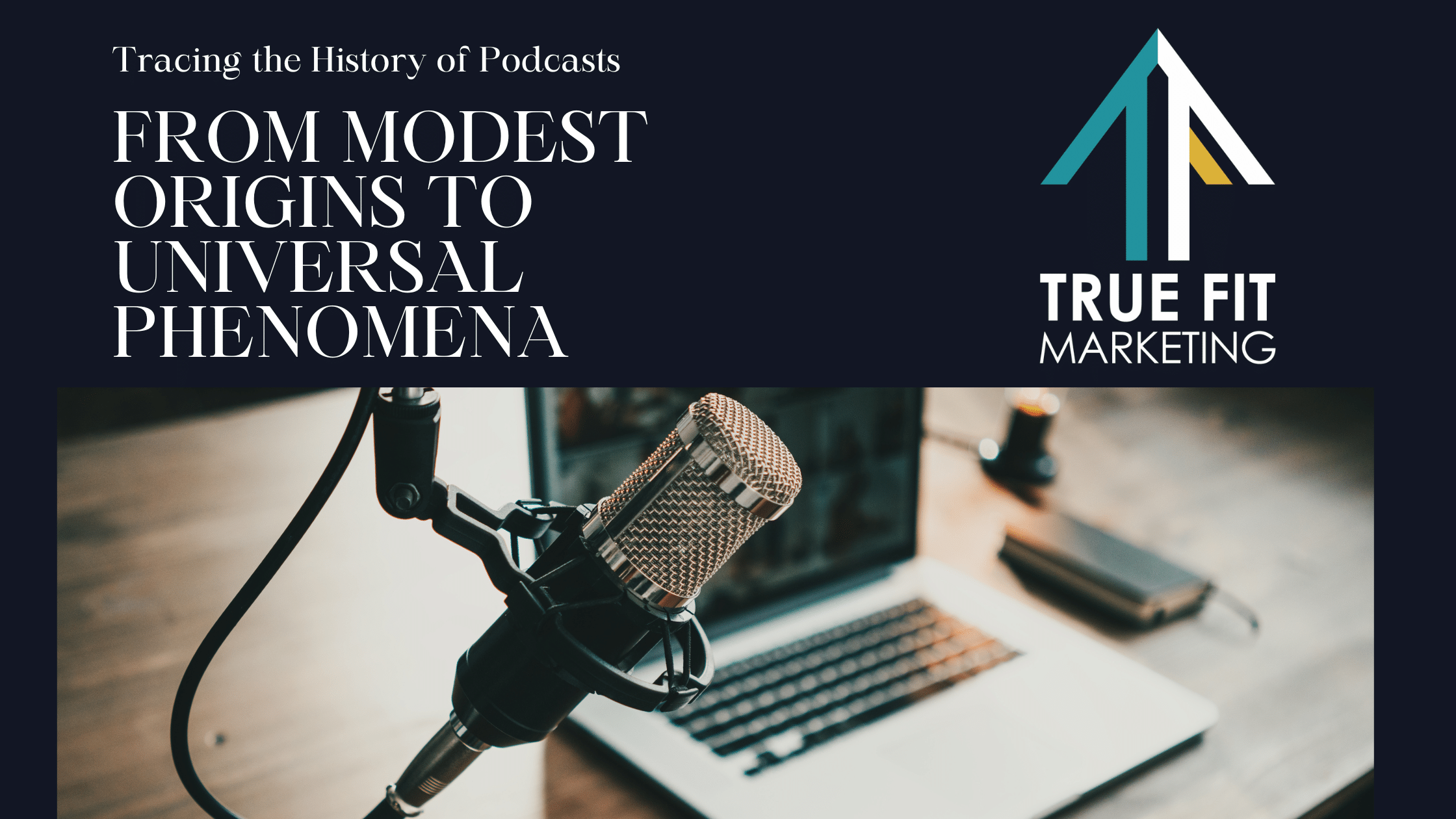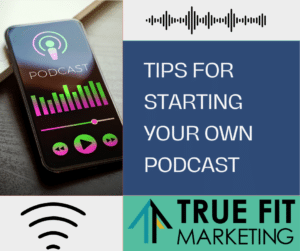
Podcasts have come a long way since the first one hit the digital airwaves. Emerging in the early 2000s, podcasts have grown into a powerful and diverse medium, captivating audiences worldwide. In this blog post, we’ll explore the history of podcasts, from their modest beginnings to their current status as a global phenomenon. Additionally, we’ll provide some valuable tips for those aspiring to start their own podcast.
The Dawn of Podcasting
The term “podcast” is a blend of “iPod” and “broadcast,” emphasizing its initial association with Apple’s iPod. The first podcast was technically in 2003 but was not called a podcast. It was a RSS feed created to offer audio content of notable interviews Christopher Lydon’s blog. “Daily Source Code” was launched by Adam Curry and Dave Winer in August 2004 and were the first to use the term podcast. This marked the beginning of a new era in digital content consumption, allowing users to download and listen to audio content on-demand.
Podcasts gained momentum slowly in their early years, with niche content creators experimenting and finding their voices. The flexibility of the medium allowed for a wide range of topics, fostering a sense of community among listeners who shared specific interests.
The Podcast Boom
Over the years, podcasts have grown in popularity, driven by several factors. The accessibility of smartphones, improved audio quality, and the rise of streaming platforms contributed to the medium’s widespread adoption. Podcasts began to cover an extensive array of genres, from true crime and education to comedy, politics and business.
In recent years, celebrities, influencers, and established media outlets have joined the podcasting wave, further legitimizing the medium and growing its popularity thanks to some big name celebrities. This influx of content and diverse voices has broadened the appeal of podcasts, making them an integral part of modern digital culture.
Tips for Starting Your Own Podcast 
Define Your Niche
Before diving into podcasting, identify your niche or area of expertise. Whether it’s storytelling, interviews, or educational content, having a clear focus will help you attract and retain a dedicated audience and interviewees if you so choose to do this.
Invest in Quality Equipment
Good audio quality is crucial for a successful podcast. If the means are available, we suggest investing in a reliable microphone, headphones, and recording software to ensure your listeners have an enjoyable and immersive experience. If it is not available, there are studios that allow you to rent time in their podcast booths. All of their equipment is available for use and you just go in, start it up and run your show!
Plan Your Content
Outline your podcast episodes in advance. A well-structured plan can help you stay organized, maintain consistency, and provide valuable content to your audience. Nothing is worse than dead air.
Focus on Engagement
Foster a sense of community by engaging with your audience. Encourage listener feedback, answer questions, and consider featuring listener contributions on your podcast.
Promote Your Podcast
Utilize social media, email newsletters, and other marketing channels to promote your podcast. Building an audience takes time as you want to find listeners who will keep coming back to hear more, so be patient and persistent in your promotional efforts.
Consistency is Key
Release episodes on a consistent schedule. Whether it’s weekly, bi-weekly, or monthly, a predictable release schedule helps build anticipation and keeps your audience engaged. It will also keep you on track as to when you need your next podcast to be finished in the planning and writing process.
The Bottom Line
As we reflect on the evolution of podcasts, it’s evident that this medium has transformed into a dynamic and influential force in the digital landscape. Whether you’re a listener enjoying diverse content or an aspiring podcaster ready to share your passion, podcasts continue to shape the way we consume and create audio content. Embrace the journey, hone your unique voice, and join the ever-growing community of podcast enthusiasts worldwide. And if you are ever interested in creating a podcast, ask us!

